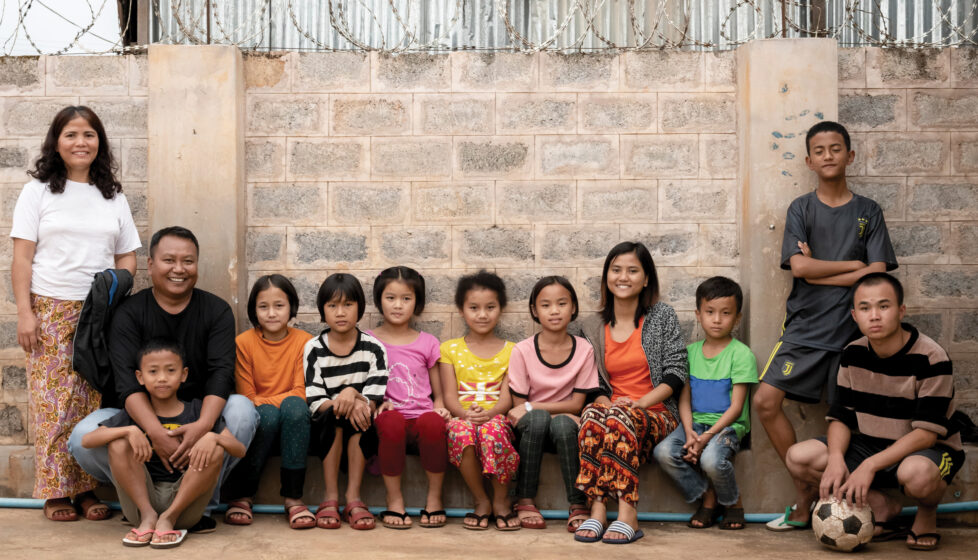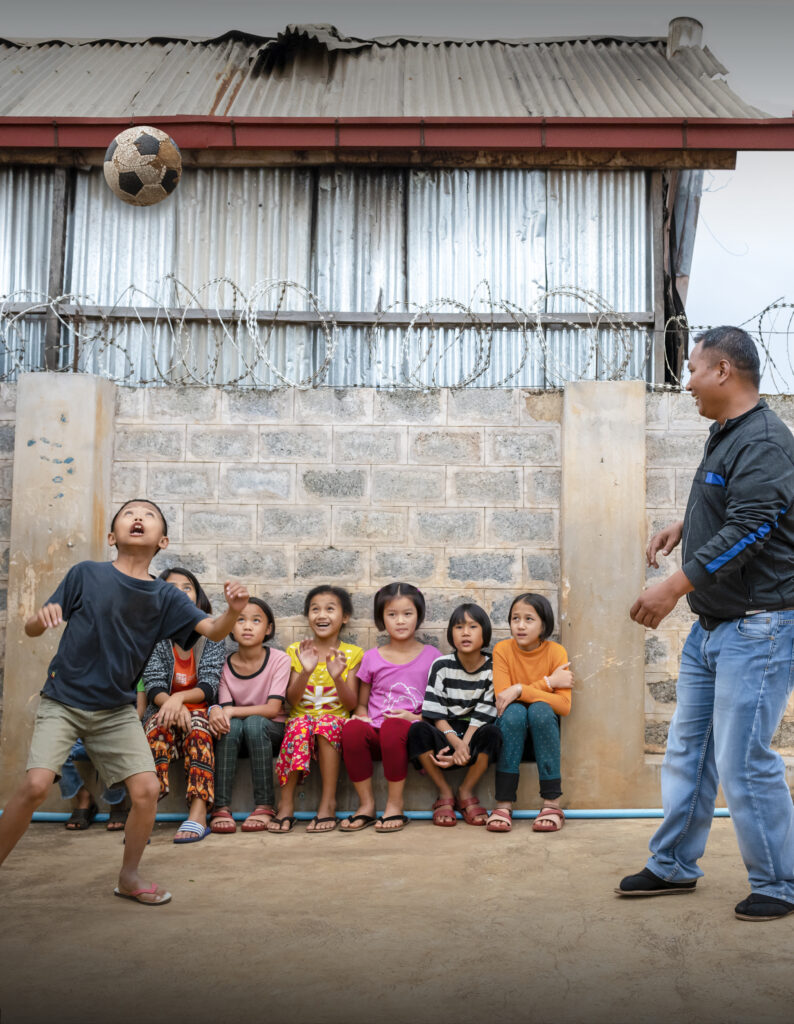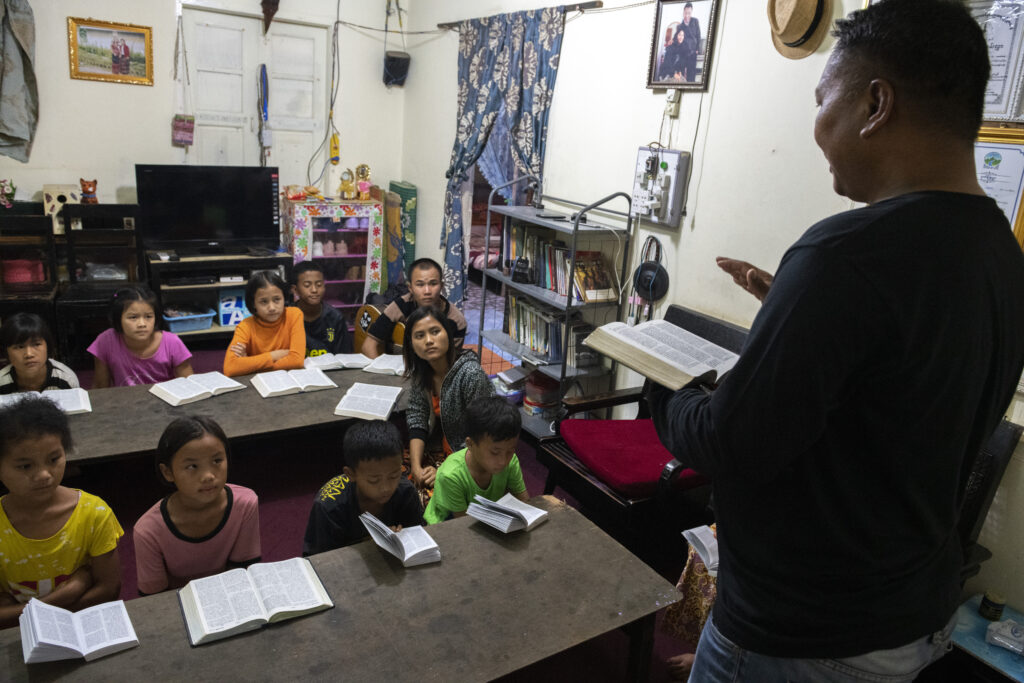Myanmar Couple Save Children of Christians from Forced Recruitment, Child Marriage
Myanmar

Kan and his wife, Maiah, host children of Christian workers in their home so the parents can continue their work without worrying that their children will be taken as soldiers or brides.
After Kan completed seminary in 2009, a friend in Myanmar asked him a pointed question: “Could you and your wife take care of two boys?”
The boys, ages 5 and 7, were children of new believers from separate families who were working in the fields. Their parents feared that since they were now Christians, rebel groups would take the boys for use as child soldiers. Families in areas where rebel groups are active are commonly expected to give up a child, and Christian families are often forced to give up all their children as a penalty for being Christians.

At the beginning of this century, Myanmar was reported to have the highest number of child soldiers in the world. At that time, an estimated 20 percent of the country’s 350,000 soldiers were children. While boys are recruited by rebel groups and the national military, girls in rebel-held areas can be married off or trafficked into China.
Kan prayed about how he and his wife could help the families. But three days later, before he could send a reply, his friend showed up at his house with the two boys. “It was a shock and a surprise for me,” Kan said, smiling.
When Kan learned that one of the boys didn’t have a father, he realized maybe his friend’s question was an answer to prayer. “I grew up without having a father, so I know how difficult it is to not have a father or parents,” he said. “Whenever I meet a child without a parent, if there’s a way I can help these children to be as their father, I’m willing to do that.”

Kan and his wife, Maiah, already had five children of their own, ranging in age from 1 to 13. They didn’t know how they would be able to feed two more, but they knew God would provide. So they committed themselves to loving the children as their own, providing them with an education and helping disciple them in their faith as long as they lived with them.
The boys stayed with Kan and Maiah until 2011, when they were able to return to their parents. Then, in 2013, after helping build a church in an area where many missionaries worked, Kan and Maiah took in four more children whose parents were unable to care for and protect them. “You must take my daughter out of here or else she will be taken as a wife,” a missionary told them.
Kan and Maiah strive to nurture the children they care for and build them up in their faith, the opposite of how the rebel groups would treat them. “When they first arrive,” Kan said, “I tell them, ‘Welcome to the family. This is your home. But you have to know it is not me who feeds you or gives you everything. The One who gives you everything is God, so we will pray and you will learn more about God because everything is under God.’
“Seeing them grow spiritually is the best part of this mission work,” he continued. “My promise is to treat them the same as my kids. I want them to share everything, but practically it’s very difficult. I try to buy the same thing for all of them. My wife and I try to do the right thing.”
Although the children are separated from their parents for long periods of time, they enjoy interacting with all the children at the home and being part of Kan and Maiah’s family.
Kan and Maiah currently care for seven children, in addition to three of their own who still live at home. They believe they have helped 17 other children throughout the years, the oldest 15 and youngest 3. As they consider how God has faithfully sustained their mission to care for children of Christians in Myanmar, Kan and Maiah are overwhelmed with joy and gratitude.

“We don’t feel we deserve to get this far, but first of all we give thanks to the Lord for helping us take care of these kids — to help them know Him more, to be educated and to be part of our family,” Kan said. “We praise the Lord for His provision and His guidance. We feel that these kids are our own children; they’re part of our family.”
Peter, a 12-year-old boy whose parents are farmers and missionaries in a war-torn part of the country, said he has grown in many ways. If he had stayed with his parents, he probably would have been taken as a child soldier. Instead, he now leads worship, prayer and youth Sunday school at church.
“When I was in the village,” he said, “I knew nothing about reading or playing guitar. I love to play guitar and I love to read now. I’ve grown a lot in my spiritual life.” Peter wants to study engineering in college.
Ten-year-old Aye Chan Mae has lived with Kan and Maiah for two years. She is grateful for their care, for the many siblings she has under their roof and for her spiritual growth. “We do devotions, and they are always teaching us about God and reading the Bible,” she said. “Every Sunday morning we recite verses and sing songs together.” If not for Kan and Maiah’s care, she likely would have been taken as a child bride.
Maiah said the best part of helping the children is simply being with them. “The most important part,” she added, “is that they come to know Christ and they love God.” And Kan has pledged to always be there for the children, just like his Heavenly Father has been there for him. “I always tell them, ‘Until I’m breathing my final breath, I am your father.’”
